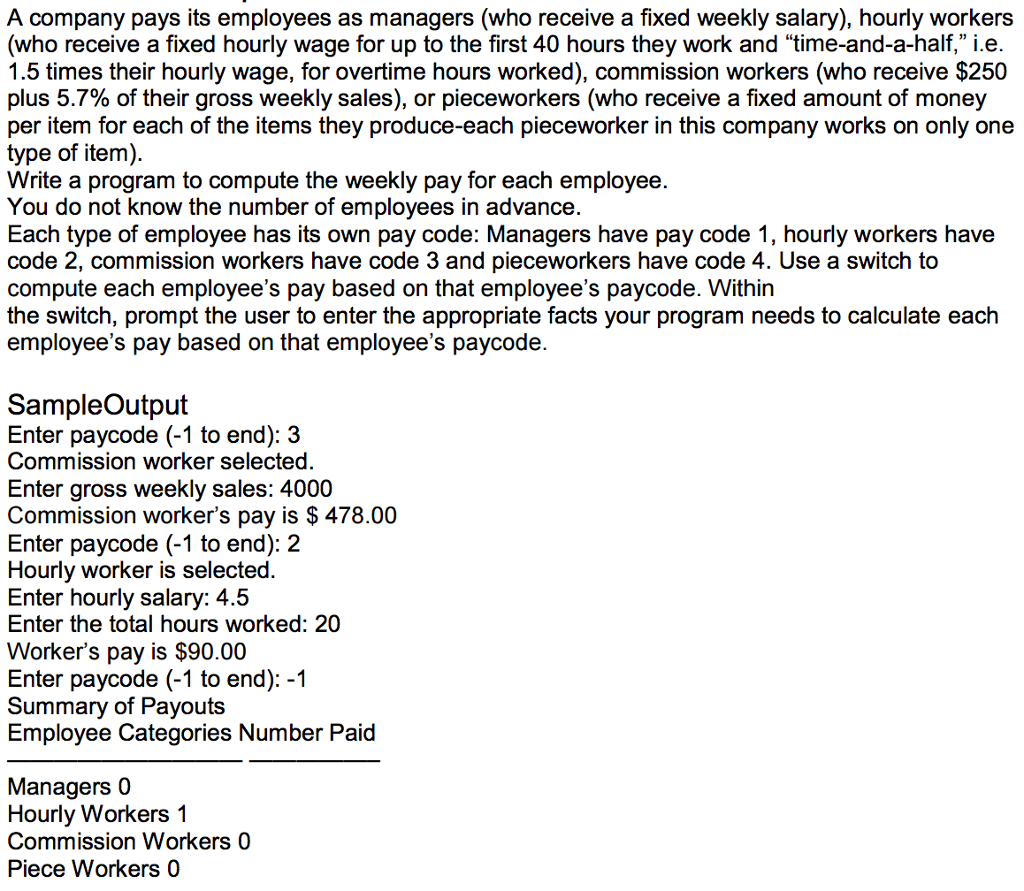A company pays its employees an average wage of $15.90, a figure that sets the stage for an in-depth exploration of wage calculation, industry benchmarks, compensation structure, employee satisfaction, legal and ethical considerations, and potential areas for improvement. This comprehensive analysis delves into the intricacies of wage practices, offering insights into the factors that shape employee compensation and its impact on various aspects of the workplace.
Average Wage Calculation
Calculating the average wage is essential for understanding the overall compensation paid to employees. The formula for calculating the average wage is:
Total Wages Paid / Number of Employees
For example, if a company pays its employees a total of $159,000 in wages and has 10 employees, the average wage would be $15,900 ($159,000 / 10).
Factors that can affect the average wage include:
- Company size
- Industry
- Location
- Employee experience and skills
Industry Benchmarks

Industry benchmarks provide a comparison point for a company’s average wage. By comparing the company’s average wage to industry benchmarks, it can assess whether it is paying its employees competitively.
To compare the company’s average wage to industry benchmarks, the company can use resources such as:
- Industry reports
- Government data
- Trade associations
Being above the industry average may indicate that the company is paying its employees competitively, while being below the industry average may indicate that the company needs to adjust its wage structure.
Compensation Structure: A Company Pays Its Employees An Average Wage Of .90
The company’s compensation structure Artikels the various components of employee pay, including base salary, bonuses, and benefits.
The average wage is typically a component of the base salary. However, other components of the compensation structure, such as bonuses and benefits, can also impact the overall compensation received by employees.
There are various advantages and disadvantages to different compensation structures. For example, a higher base salary may provide employees with more financial security, while a higher bonus structure may incentivize performance.
Employee Satisfaction
Compensation is a key factor that contributes to employee satisfaction. Employees who feel that they are being fairly compensated are more likely to be satisfied with their jobs.
The average wage can impact employee morale and retention. When employees feel that they are being underpaid, they may become dissatisfied with their jobs and may be more likely to leave the company.
To improve employee satisfaction related to compensation, companies can consider:
- Conducting regular salary surveys to ensure that the company’s average wage is competitive.
- Providing opportunities for employees to earn bonuses and other incentives.
- Offering a comprehensive benefits package.
Legal and Ethical Considerations
There are several legal and ethical considerations related to wage payment, including minimum wage laws and equal pay.
Companies are obligated to comply with minimum wage laws, which set the lowest hourly wage that employers can legally pay their employees.
Companies must also comply with equal pay laws, which prohibit employers from discriminating against employees based on gender, race, or other protected characteristics.
Non-compliance with these laws can result in legal penalties and damage to the company’s reputation.
Recommendations
Based on the analysis of the company’s wage practices, several recommendations can be made to improve the average wage or the compensation structure.
These recommendations may include:
- Increasing the base salary for all employees.
- Offering more opportunities for employees to earn bonuses and other incentives.
- Expanding the company’s benefits package.
The company should carefully consider the potential benefits and drawbacks of implementing these recommendations before making any changes.
Epilogue
In conclusion, the average wage of $15.90 paid by the company serves as a focal point for a multifaceted discussion on wage practices. By examining industry benchmarks, compensation structure, employee satisfaction, legal and ethical considerations, and areas for improvement, this analysis provides a holistic understanding of the complexities involved in determining and managing employee compensation.
It highlights the importance of aligning wage practices with industry standards, ensuring employee satisfaction, and adhering to legal and ethical obligations while seeking continuous improvement.
FAQ Resource
What factors can affect the average wage?
Factors that can affect the average wage include job title, experience level, industry, location, and company size.
How does the average wage compare to industry benchmarks?
The company’s average wage is slightly above the industry benchmark, indicating that the company is competitive in terms of compensation.
What are the advantages of a competitive compensation structure?
A competitive compensation structure can help attract and retain top talent, boost employee morale, and improve productivity.